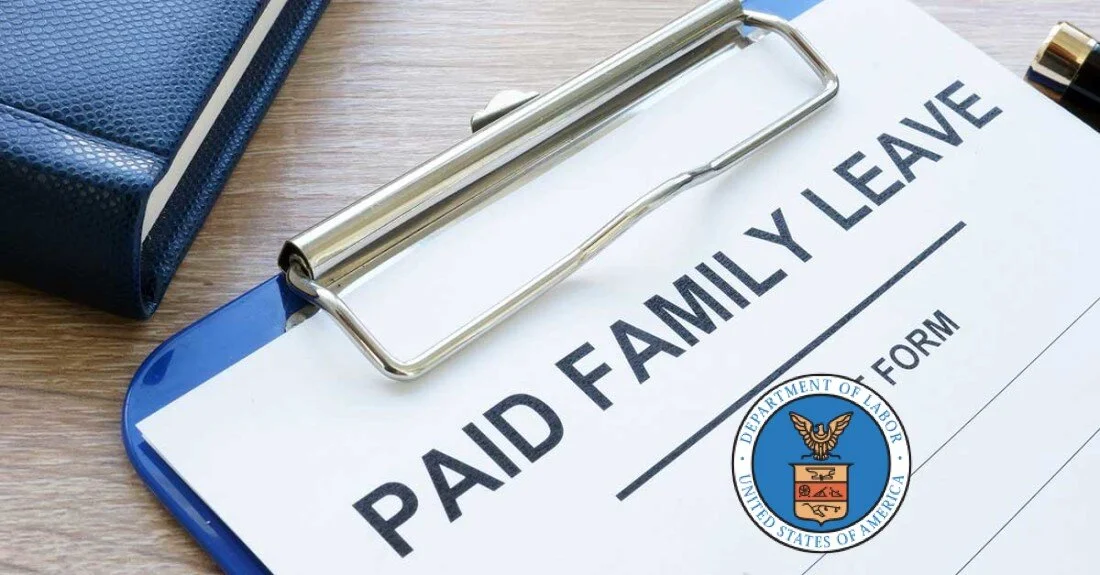The recently passed Families First Coronavirus Response Act (FFCRA) has specific employer requirements related to FLMA and sick pay. You may be wondering what it means for your business. If you’re looking for information on the loans and tax credits available via the CARES Act click here.
On March 27th, Congress passed the FFCRA legislation in response to COVID-19. While more legislation is in the works, below is summary of the key provisions and changes you need to be aware of. We will continue to update this page as more information becomes available.
Update July 24th: Department Of Labor Publishes Additional Guidance on Wage And Hour Rules, Family and Medical Leave: The DOL has issued additional guidance on how the Fair Labor Standards Act (FLSA), the Family and Medical Leave Act (FMLA), and the Families First Coronavirus Response Act (FFCRA) affect the workplace as workplaces reopen amid the pandemic. You can find a fact sheet for employers, a fact sheet for employees, and a guidance poster and a FAQ page about posting requirements.
Update: April 1 - DOL releases Q&A to employers and employees on their responsibilities and rights under the FFCRA.
These provisions take effect on April 1, 2020.
Emergency Family and Medical Leave: Employees can now take up to 12 weeks of job protected leave (2 weeks unpaid followed by 10 weeks of paid leave up to monetary caps) if they are unable to work (including by telecommuting) due to a need to care for a child whose school or childcare provider is closed or unavailable due to the Coronavirus outbreak.
Emergency Paid Sick Leave: Employers must offer employees 80 hours of paid sick leave (up to monetary caps) to quarantine, to seek a diagnosis or preventive care for coronavirus, or to care for a child.
Paid Leave Tax Credits: To help bear the cost of the new paid-leave requirements, employers can qualify for dollar-for-dollar reimbursement through tax credits for all qualifying wages paid under the FFCRA. Qualifying wages are those paid to an employee who takes leave under the Act for a qualifying reason, up to the appropriate per diem and aggregate payment caps. Applicable tax credits also extend to amounts paid or incurred to maintain health insurance coverage.
Update: April 1 - IRS FAQ for COVID-19-Related Tax Credits for Required Paid Leave
Employer Notice: Employers will be required to post notice of the new provisions in a conspicuous place on their premises (upon returning from remote work). Employers may satisfy the notice requirement by emailing notice to employees, or posting the notice on an employee information internal or external website.
Link to the latest Employee Rights Notice provided by the DOL. You may use this to distribute to your employees by April 1, 2020.
Exemptions: Employers that are health providers or emergency responders may exempt themselves from these requirements. Furthermore, employers with fewer than 50 employees may seek an exemption with the Department of Labor if compliance will threaten the business as an ongoing concern.
Prohibitions and Penalties: Employers are prohibited from retaliating against employees who seek to take this expanded leave. Employers found to be in violation of the requirements may be subject to penalties and enforcement under the Fair Labor Standards Act or the Family First Coronavirus Response Act. For your convenience, here are links to important information and resources from the Department of Labor:
Additional Resources:
Employer Guidance for Families First Coronavirus Response Act (FFCRA) via DOL
General information from the DOL about the leave requirements
Guidance on interpreting FFCRA: leave, layoffs and unemployment via Fisher Phillips LLP
Please feel free to reach out to us if you have any questions or concerns about these new requirements, or any matters impacting your business and/or employees as a result of COVID-19.

